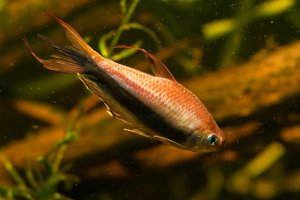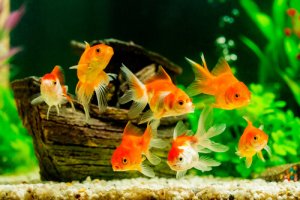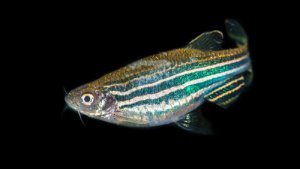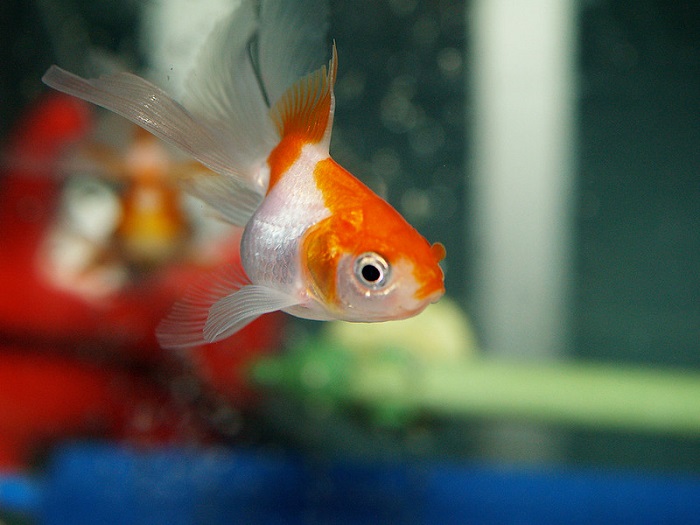
What things affect goldfish lifespan? If you have ever wondered how to help your aquatic pets live longer, you will be pleased to know that the right care can make this relatively easy. In fact, you may even find your goldfish live much longer than you expect!
The popular stereotype of goldfish as having basic needs simply isn’t true. Once you begin to understand these complex creatures, you will soon get a feel for what can give your goldfish a long life.
This handy guide breaks down five of the main factors. It also explains why they affect your fish, plus goes into some background info and frequently asked questions. Read on to find out more!
5 Main Factors That Influence Goldfish Lifespan:

So, how long exactly do goldfish live? And why do certain things impact goldfish lifespan?
You may be surprised to hear that the average goldfish lifespan can be between 15 and 20 years. Yet before we discuss the things that can influence this, it helps to know this species’ history. This is because the environments that goldfish were bred in were very different from the aquariums we find them in now.
Descended from the wild Prussian carp, the modern goldfish first appeared in the fish ponds of Buddhist monks in China. The monks noticed some carp they raised for food were a bright orange-gold. They then bred these fish for decoration, instead of eating them. This means a good aquarium ideally mimics the environment of these ponds and the slow-moving streams in which wild carp live.
Modern goldfish now vary greatly from these wild carp and early goldfish strains. They can come in single-tail and twin-tail varieties, plus varieties without a dorsal fin, and all of these have slightly different needs. Yet they are nevertheless affected by their history in ponds and streams.
In the end, how long your fish lives is not just luck! You really can help them live longer if you look after them well, so here are the five main factors to watch out for:
1. Water Quality
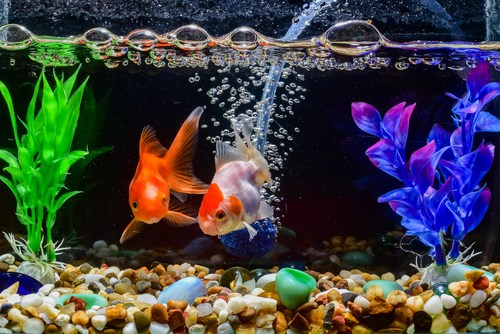
Ultimately, goldfish lifespan can depend very heavily on water quality. Furthermore, poor water quality can lead to all kinds of diseases. But how can you maintain the best conditions for your fish?
Main influences on water quality and average goldfish lifespan:
- Plants: A well-planted tank is great for ensuring your goldfish live long and happy lives. Yet, plants don’t just maintain water quality by filtering toxins. They also provide plenty of places for your fish to hide and feel safe and stress-free.
- Filtration: When setting up a goldfish tank, choose a filter with a flow rate of 4x the amount of water in your tank at minimum. The only thing to take into account is that some slower-swimming fancy goldfish can occasionally get sucked against the filter. Otherwise, a well-filtered tank is essential for preventing the build-up of toxic ammonia and nitrates from your fish’s waste.
- Substrate: Some substrates can be really good at controlling water quality, such as lava soil, which helps balance the pH. Yet, soil from the wild should be avoided at all costs, as it can introduce bacteria and poison your fish. If you’re unsure, substrates from your local aquatics store like sand or gravel are always a safe option for goldfish.
- Over/under-feeding: Overfeeding doesn’t just cause digestive upset, moreover, uneaten live food can introduce parasites. Overfed fish produce more ammonia and nitrates, too. Feed fish once per day, and remove all uneaten food within five minutes of feeding.
- Water changes: Even if you do everything else listed above, aquarium water still gets dirty if you don’t change it at least once a week. This can be done with an aquarium vacuum, which is very easy to use. Likewise, changing the filter every three months ensures it continues to work well.
2. Breeding
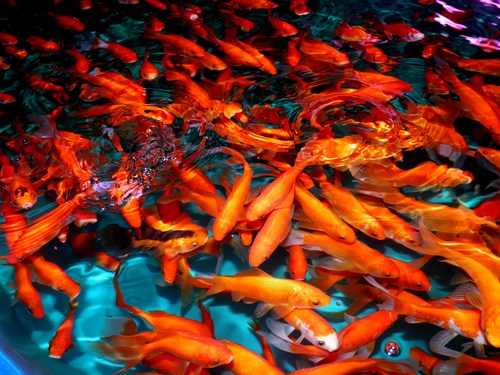
Did you know that genetics, as well as care, can affect the average goldfish lifespan? Some goldfish varieties are more sensitive than others, but individual fish can also be genetically more or less robust.
How genetics can affect the lifespan of a goldfish:
If you have ever wondered ‘how genetics affect goldfish lifespan?’ this is often down to how hardy your fish is. Furthermore, this is easy to tell simply from looking at them:
- Body shape: The egg-shaped bodies of some fancy goldfish mean there is more pressure on the swim bladder, making them more sensitive. When purchasing egg-shaped goldfish, choose a fish with a slightly longer body. They tend to be hardier, and this means there’s more chance of them living longer.
- Other features: Some goldfish like the oranda and ranchu have a ‘wen’, a fleshy growth of tissue, that can develop specific medical conditions. While these fish can live as long as any other if cared for correctly, this can be a weak spot if you’re inexperienced.
3. Environment
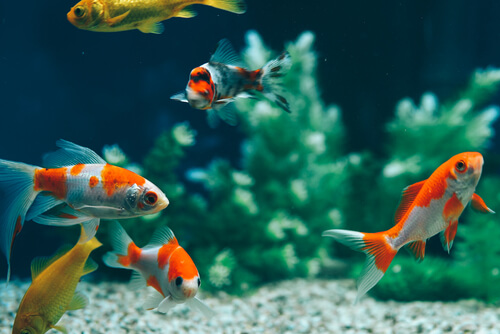
Beyond genetics and water quality, the wider environment of the tank also plays a huge role in goldfish lifespan. If you don’t have a great environment to start off with, it doesn’t matter how well you maintain it.
What exactly is a good habitat for goldfish? Starting with basics makes a lot of difference. Luckily, it’s simple to set up a tank that your fish will love.
Creating an environment to promote goldfish lifespan:
- Tank size: When keeping goldfish, it’s crucial to have a tank of sufficient dimensions (minimum 30 gallons/114 liters for one fish). Furthermore, tanks with a greater surface area make it easier for your fish to access oxygen. The best tanks are wider than they are tall, maximizing the surface area-to-volume ratio.
- Number of fish: Likewise, the number of tankmates is important. Too many fish can increase the nitrate levels via their waste. It’s recommended that you add an extra 10 gallons/38 liters of water for each fish.
- Type of tankmates: Suitable tankmates can help your aquatic pals feel happy and safe. When choosing appropriate tankmates, understand that not all fish are as peaceful as goldfish. For example, some fin-nipping fish can attack trailing fins, stressing your fish out. Likewise, hardy goldfish like the comet can outcompete egg-shaped goldfish as they swim more easily.
All in all, it’s good to prepare the best environment possible for your fish before taking them home. That way, you can enjoy many long years together.
4. Diet
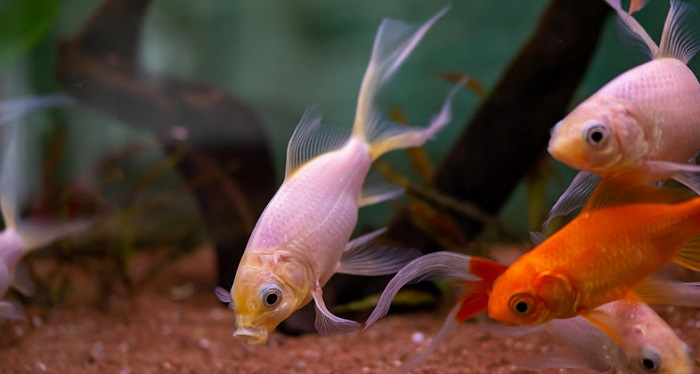
Both diet and your feeding schedule are crucial to how long your fish lives, and high-quality food is a must for maintaining a strong immune system. So, read on to see the role that food plays for your fish:
What foods can increase the lifespan of a goldfish?
- Sinking pellets: Many fishkeepers prefer sinking pellets, as floating pellets and flakes can cause your goldfish to gulp down air. For fish with more sensitive swim bladders such as the ranchu or oranda, this can lead to swim bladder disease.
- Live food: Live food like brine shrimps or daphnia is great for many goldfish, especially active ones like the comet. The extra stimulation of swimming after the food can really boost their quality of life.
- Frozen protein: In the absence of available live food, you can feed frozen protein instead. Ultimately, fresh or frozen, protein really mimics your fish’s natural environment.
- Vegetables: Likewise, occasional vegetable matter mimics the plants which your fish would find in the wild. You can include floating plants such as Brazilian pennywort or duckweed, both of which help keep them happy and entertained, too.
Can diet ever reduce the lifespan of a goldfish?
Just as a nutritious diet can help your goldfish live longer, some things can also contribute to poor health:
- Lack of variety: Feeding only flakes, or only protein can certainly reduce goldfish lifespan. Ultimately, your fish isn’t getting every nutrient possible. Although pellet foods say they are a complete formula, many fishkeepers note that fish fed with a varied diet tend to live longer.
- Overfeeding and underfeeding: As we mention under ‘water quality’, too much food can lead to toxin buildup. However, it’s important to ensure your fish don’t starve, so feed fish what they can eat within five minutes to prevent over or underfeeding.
5. Stress
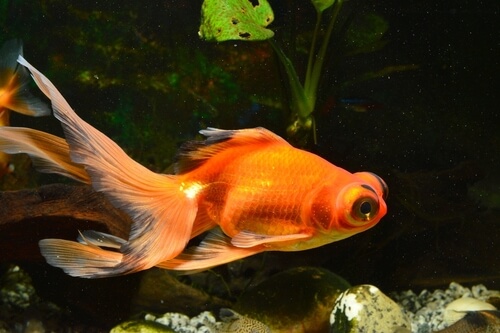
A fish living in a stressful environment may spend so much energy coping with the stress that this actually means it dies earlier. But what causes stress, and how does stress link to your fish’s health?
What is the connection between the lifespan of a goldfish and stress?
- Fear of predation: Fear of predation can stress your fish out, as they retain these instincts from their carp ancestors. As a result, many species are happiest in groups and tend to live longer this way.
- Environmental disruption: Did you know disruption to the environment can also cause stress in fish, which makes them less resilient to disease? This can include changing the water too often. Likewise, moving the fish from one tank to another, or giving them away can be highly disruptive.
- Breeding conditions: If you’re looking to breed your fish, it’s best to note this is a sensitive time when it’s best to pay attention to stress levels. Keep on top of water quality, and ensure you have all the correct equipment prepared such as a separate tank.
What Else Affects The Average Goldfish Lifespan?
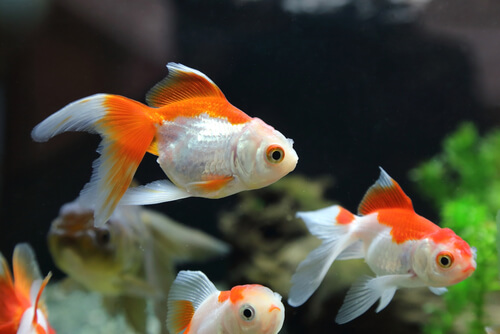
Multiple things simultaneously can affect the average goldfish lifespan. However, the biggest cause of goldfish death in well-cared-for fish is simply old age. In addition, most causes of early death link back to poor water quality as this makes it harder for your fish to cope with other stressors.
Some signs your goldfish is about to die can be confused for common diseases and vice versa. So, knowing the difference can also help your fish live to a ripe old age.
Final Thoughts
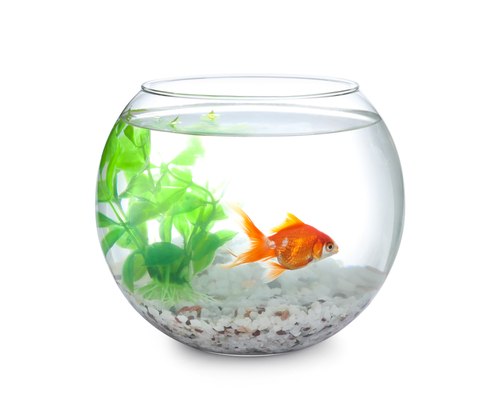
There isn’t one single factor that controls goldfish lifespan. Overall, a happy, healthy goldfish is looked after in every way. So, if you are new to fishkeeping, starting small and looking after easy-to-take care for fish is a great way to learn the needs of these creatures. This ensures you can do everything possible to have a long and enjoyable time together.


